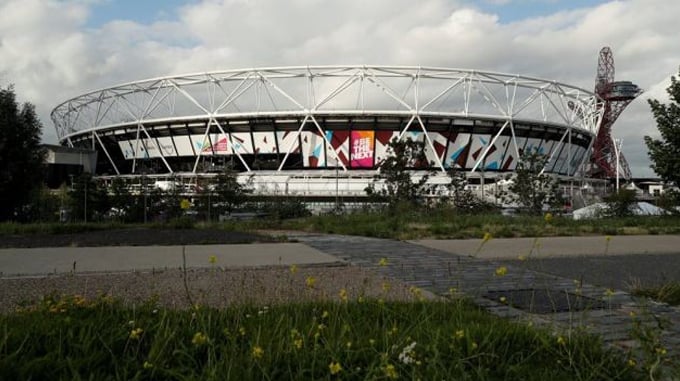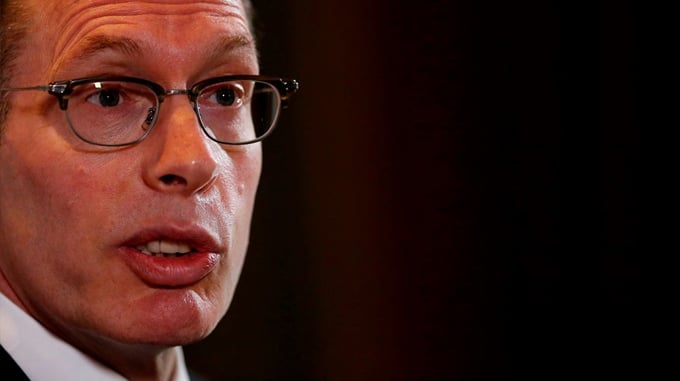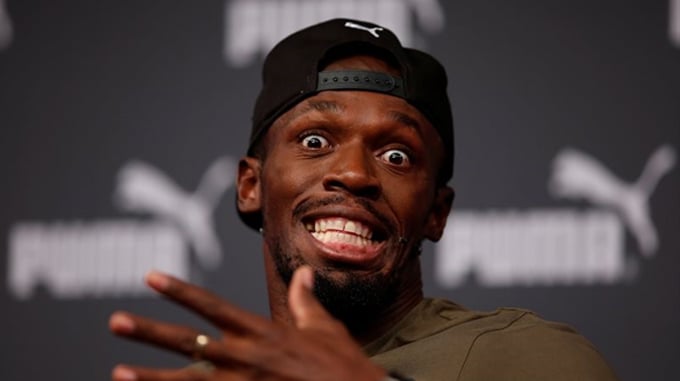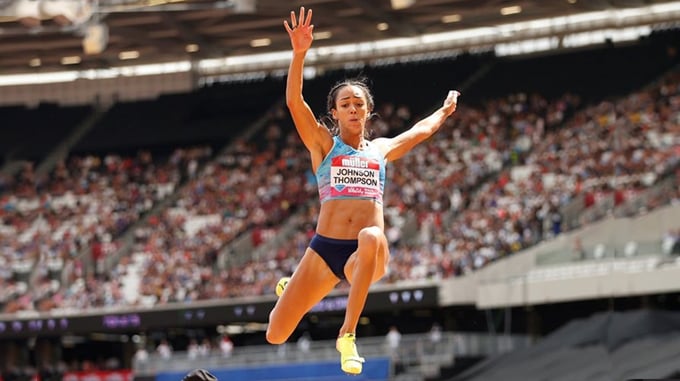Search the latest and greatest job opportunities in sport

From 4 th to 13 th August, the Queen Elizabeth II Olympic Park will reverberate to its biggest event since the halcyon days of London 2012. The London 2017 World Athletics Championships are the kind of occasion that was envisaged for the park and its central facility - now known as the London Stadium - through years of lobbying, planning and building.
Yet the championships also arrive at a pivotal moment in the history of athletics, both in the host nation and around the world. The sport’s global governing body, the IAAF - now led by London 2012 figurehead Lord Coe - has been grappling with a raft of issues in recent months: from the doping crisis and Russia’s ban from competition to the governance mess left by former president Lamine Diack and an ongoing battle to remain popularly relevant and commercially appealing - not least with the great Usain Bolt about to cross the finish line of an extraordinary career.
For UK Athletics and its chief executive, Niels de Vos, the event brings other challenges. Interest in track and field has been carried along by the London 2012 factor but the authorities now must ensure that London 2017 represents the start of a period of sustained prominence and excellence, rather than the end of a golden era.
How have the preparations for the IAAF World Athletics Championships gone?
Preparations have gone very well. Obviously we’ve had the World Para Athletics Championships already, which was deemed by everybody a huge success and the best ever, so that gave us a good chance to test everything, stress-test all of the operational side of it in advance of the IAAF coming to town. Touch wood, everything has gone swimmingly.
We know it’s going to be a huge success because we’ve pretty much sold out; we’ve sold over 700,000 tickets which is quarter of a million more than anyone’s ever done before for these championships. On all those fronts it’s already the most commercially successful championships ever. We’re coming in on budget, we’re not having to go back to the public purse for anything and we might even run a small surplus which is pretty much unheard of. We’ve hit the budget we wrote in 2011, so we’re very pleased with that.

UK Athletics chief executive Niels de Vos is hoping a strong London 2017 can provide lasting benefits for the sport
What do you put that success down to? The World Paras were an enormous success, selling more tickets than the previous eight championships combined. Why do you think there is such an appetite in London for athletics?
I think the British public loves sport - that is obvious. Between the two events we’ve sold over a million tickets for athletics, which no one has done anywhere on the planet before. You could argue there were more tickets sold for athletics at the Olympics but you have to bear in mind people were buying tickets for the Olympics first and foremost. This is actually directly coming to athletics and that’s a fantastic vote of confidence for the sport.
I think we’ve marketed it very, very well. We’ve got a very good database we’ve built up over the years that we’ve been in the Olympic Stadium, and our marketing team has done a brilliant job.
We start with having the best athletics stadium in the world. Great actors need a great stage and we’re very lucky that we’ve got the best stage in the world. The public know the stadium, they know how easy it is to get to, they know they’ll have a great day out here and that they’re really well looked after.

It’s ultimately who runs fastest, jumps highest, throws farthest. It’s pretty primal, and that’s a compelling narrative for people to come and watch it.
That legacy from the Olympics has been fantastic for the sport. I think we pitched it just right - this is about major event fever, it’s not just about targeting the hardcore athletics fan, it’s about targeting families across the country and the world to say “this is a major event that’s an incredible family day out” and I think that’s really hit the mark because most people have bought for multiple sessions and multiple tickets.
It has caught a mood. That’s partly a legacy arguably going all the way back to the Commonwealth Games in Manchester in 2002 - that was the first major event we had for many, many decades and it set up the last 15 years of establishing a country that loves major events.
The event is already a success from a sales and commercial perspective, then, but what do you want to be looking back on when the week is over as the legacy of the championships?
On that final day, I’d want to look back on all the crowds that came in full of expectation and hope leaving having been entertained and having seen some superb athletics. There are a lot of narratives that we have yet to see unwind but we start on Friday night with Mo Farah and it would clearly be fantastic if he yet again did the remarkable and won a gold.
Then we’ve got the Bolt story on Saturday, we’ve got Katarina Johnson-Thompson maybe stepping into Jess’ [Ennis-Hill] shoes on Sunday, we’ve got Laura Muir on Monday… so every day from a British perspective there’s a major story but there’s big international stories as well.
Will Wayde van Niekerk step up and do the 200m/400m double for the first time since Michael Johnson? Will Bolt retire on a high? Those are the narratives that can really put the icing on the cake of what we know will be a fantastic championships.
To be a world champion at track and field is probably the hardest individual sport to be a world champion in. It’s essentially gladiatorial. There’s very little luck, no refereeing decisions or bounces of the ball. It’s ultimately who runs fastest, jumps highest, throws farthest. It’s pretty primal, and that’s a compelling narrative for people to come and watch it.

London 2017 will mark the great Usain Bolt's swansong but de Vos hopes home and international stars will supply stories to fire the public imagination
The world of athletics is still embroiled in doping controversies and there has been a worry that the public is turning off because of it. What can you do, beyond stringent testing, to make sure it doesn’t overshadow these World Championships?
Firstly, the checks get tighter and stronger at every championships. The key tests are actually out of competition around the world beforehand and that’s an international responsibility of the IAAF and WADA [the World Anti-Doping Agency]. Obviously the Russians aren’t here, and people are getting caught. While that’s never a good news story, actually from my point of view it is because it’s far better to catch people regardless of their status or nationality than to try and pretend there isn’t an issue.
People know there’s an issue and they know they’re getting caught, sometimes from mistakes they made ten years ago. And that’s definitely making it a cleaner sport than it’s ever been.
Is it also to do with being victims of your own recent success, which came after some fallow years at Olympic level?
I think that’s true; I also think people build athletes up. Someone like Laura Muir, for instance, is a double gold medal-winner at the European Indoors, she’s beaten Kelly Holmes’ records at 800m and 1,500m, yet if she doesn’t win a medal it will be viewed by some people as a failure, which is the most extraordinary observation for a young kid who’s shattered previous records. She’s already a massive success, and I do think that is an unfortunate consequence of media pressure. I don’t think it’s to do with UK Sport or UK Athletics, I think it’s to do with public perception.
Since I’ve been alive, which is 50-odd years, there are only around 20 British athletes who’ve won a gold medal. So for people to expect that we’re going to win four, five, six gold medals is frankly nonsense. If I compare two sports: in Beijing, Michael Phelps won eight gold medals and the entire US track and field team only won six. So you can’t really compare sport to sport.
The story I feel saddest about is Christine Ohuruogu, who came within a vest’s thickness of defending an Olympic title in London and was ignored because she got a silver in a rush of GB golds, and I think that’s a criminal shame because she’s one of the very, very best athletes this country has ever seen.
I think expectation levels around track and field are ludicrously high when the medals are incredibly difficult to get. You don’t just have to be the best in the world, you have to be the best in the world on that day, on that particular second. That’s brutally tough. That’s the sport we’re in and it’s partly why we love it so much.

The success of British sport in recent years has changed the levels of popular expectation for the next generation of athletes, like heptathlete Katarina Johnson-Thompson
Has the role of UK Athletics changed in your decade as chief executive? What is the responsibility of the body now and over the next five to ten years?
I don’t think it has changed. All sports have a complex web of governance that actually sometimes overcomplicates what’s a very simple sport. Our role is at the very top end of the sport, because we have home country federations who look after clubs and grassroots, so we’re at the upper echelons of the performance pyramid so we focus very much on the performance end and the senior teams at European, World, Olympic and Paralympic level.
Our job is also to keep the sport popular. That’s really important because many Olympic and Paralympic sports almost disappear between events. I feel deeply frustrated on behalf of the swimmers who had a fantastic world championships last week [at the Fina World Championships in Budapest] but many of the British public weren’t even aware it was happening. What athletics can’t afford to do is become a once-every-four-years sport, in either Olympic or Paralympic terms.
So we’ve spent a huge amount of time and energy making the most of the legacy the stadium has given us to ensure that we are a big sport , that we’re seen up there alongside the most important sports in the country and I think we’ve done that phenomenally well. When I joined, a big event was 12,000 people at Crystal Palace. By 2013, we filled the Olympic Stadium for three days and sold 180,000 tickets. That profile is what brings not only money into the sport but awareness, it brings stardust and ultimately it inspires kids to take the sport up because people want to do well but they quite like being well known as well.
We’ve got three or four members of our team here who were inspired into athletics by 2012. Very famously, Dina Asher-Smith was a kit carrier at London 2012 and Desirèe Henry was one of the lighters of the flame. But almost all of the young kids who were maybe 15, 16 in 2012, who are now going to be hopefully competing in world championship finals and may not have been in the sport had we not been able to offer them the platform of anniversary games and world championships.
We’ve had a great run and we’ve shamelessly targeted events. Straight after this we go straight into preparations for the World Indoor Championships in Birmingham in March next year. Straight after that we’ve got the European Indoors in Glasgow the following year. There’s a very good chance we’ll get either the Commonwealth Games or the European Championships here in 2022. We need to focus on that side of the sport as well.
This article was originally published by our partners SportsPro Media .
Give your career in sport a boost with the latest live vacancies , or create an account today and stay up to date with all the latest industry knowledge, events and jobs in sport.
Search the latest and greatest job opportunities in sport
One of the many key success factors when assessing the quality of degree programmes is the employability rate of its gra...
Read moreThe global major event industry is one of the most thrilling and impactful career paths you can choose. If you’re lookin...
Read moreStarting his career in New Zealand within sports events, Regan gained valuable experience with Hockey New Zealand and Ne...
Read more